Yesterday we had our monthly UC Observer Sunday, when someone takes an article they have read in the print or online edition of the United Church’s magazine and shares comments, insights and questions it has raised for them. The following is my take on what was shared. (Hyperlinks aren’t working consistently. If they fail, go to www.ucobserver.org. Huron Carol articles are on Home Page; use Search box for Uncle Elmer’s lesson of Joy.)
Uncle Elmer’s lesson of Joy (highlight the whole link, right-click and Go To…) https://www.ucobserver.org/columns/observations/2006/12/uncle_elmers_enduring_lesson_of_joy/
Uncle Elmer often had a spontaneous moment of joy which he shared with those around him. This one, in particular, had happened on a Christmas Eve. (Spoiler Alert: I didn’t have the tears, I just guffawed out loud!) This reminded our speaker, Mary Anne, about the last Christmas Eve service she went to her with her grandfather, Grandpa Bill. Bill lived with Huntington’s Disease and increasingly unable to interact socially. Mary Anne remembers her family taking up multiple pews, one behind the other, and Grandpa Bill mistakenly got up and started singing. His grandchildren in front of him started to giggle. His wife (“Grandma Berne), a small, gentle woman was pulling on his shirt tail to get him to sit down, with the same tone of voice as Elmer’s wife did: patient but a bit embarrassed. But as Mary Anne remembers it “He didn’t mean to [get up and sing] but once he realized he got us going, he wouldn’t quit.” She felt that David Wilson’s experience — and the lesson about Christmas from both Elmer and Bill had been much the same: (Quoting David Wilson’s Editorial – Dec 2006): “He reminded us to make room for the spontaneous in the midst of the season’s traditions and rituals — to admit and celebrate sudden bursts of light, to come and behold the Spirit and the unpredictable ways it moves among people seeking its presence. Elmer offered a gift of the Christmas truth, proclaiming, “Joy happens” — no matter how you pronounce it.”
There is truth to that. The Child’s arrival brings joy amid the chaos and challenges that Mary & Joseph faced. The Shepherds experience the joy of hope in the middle of an unpredictable political climate. God breaks in and brings joy when we least expect it.
The Complex history of the Huron Carol – Jesous Ahatonnia
https://ucobserver.org/faith/2018/12/huron_carol/
This is probably my most favourite song of the Christmas season. The melody is haunting, the words poetic and evoke beautiful images of Canadian winter. And it is a link to my childhood memories of Christmas Concerts in southern Quebec – perhaps because there is a French-language version and it was written by Roman Catholic Jesuit priest Jean de Brébeuf, one of the “Canadian Martyrs”. It is a song that demonstrated contextualized theology – actually envisioning how God-among-US might be expressed. Mindful of Canada’s imperial history with the original people of this land, and wanting to work towards reconciliation and being a truly inter-cultural church, singing it makes space for an Indigenous perspective in an otherwise heavily English/Scottish-centric service of Lessons & Carols. of What’s not to like?
Turns out there’s more than I thought. I knew that it was written by a Jesuit priest and thought it was a song of celebration, contextualized into the Wendat worldview. Turns out it was a tool of conversion, which created factions and caused great upheaval among the people he served. Strike One.
Turns out the English translation isn’t actually a translation at all. According to the article by Will Pearson Middleton’s “lyrics bear almost no relation to the original Wendat text, and critics say Middleton relied on his own stereotypical understanding of Indigenous people to write them. Among the many errors that are pointed out is that Gitchi Manitou is not a Wendat term, but Algonquian.” I understand that as saying something in French but saying it’s from Portugal. Pearson quotes Mark MacDonald, the national Indigenous bishop of the Anglican Church of Canada: “The translation is a romantic version done by a non-Indigenous person and leaves out some of the emphasis of the original”…. “My understanding is that Jesus in the original is placed more firmly in the cosmology and world view of Wendat people.” Strike Two.
And the tune is a French-from-France folk song, not a Wendat tune. Strike Two and half.
So, like Bruce Cockburn, I could learn the Wendat words…but it is not my language. Doesn’t this become cultural appropriation? And if I sang it in its original language it still doesn’t change the rest of the difficulties inherent in it.
Does not singing it erase the Indigenous imagery, and the lessons that teaches us?
Introducing it, and its complexity, in the middle of a service may be a teachable moment. Or it may be a really awkward moment that takes the focus away from the celebration of discovering God in the person of Jesus of Nazareth (what is called the Incarnation) and towards what some experience as an intrusive “political correctness”.
Do I put it in the service or leave it out? How do I reconcile the diversity of my responses to it so that I can sing a song I love with the integrity and humility I seek?
P.S. As I was posting the blog today I discovered another GREAT link on the UC Observer website which includes more a accurate English-language translation, sung by Mary Dale. Check it out! https://ucobserver.org/culture/2018/12/huron_carol_recordings/
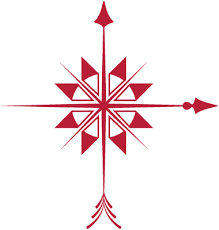 I know I’m not the only one, but I have times when a day is so “busy” I can hardly remember what I’ve done in it, ‘which end is up’; times when I wish I slow down the pace of life so I can take a deep breath and take stock. Sometimes I wish I had the time and the energy – at the same time – just to chew on an idea that’s been floating in and out of consciousness. I want to step out of “regular time” with all that “has to be done” and be in a different kind of time, in which I can just Be.
I know I’m not the only one, but I have times when a day is so “busy” I can hardly remember what I’ve done in it, ‘which end is up’; times when I wish I slow down the pace of life so I can take a deep breath and take stock. Sometimes I wish I had the time and the energy – at the same time – just to chew on an idea that’s been floating in and out of consciousness. I want to step out of “regular time” with all that “has to be done” and be in a different kind of time, in which I can just Be.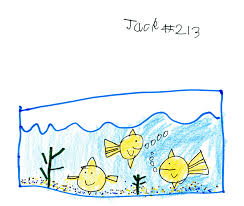
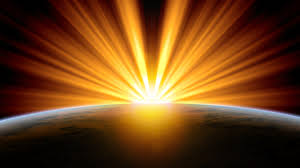 lot of reflection this Spring; I love this season. It’s a time of transition, of liminal light – not dark, not light, just a sense of an Eternal Dawn. I feel as if the light and darkness are in coming into balance and time will stand still. My lovely image shatters when I realize that at the balance point lasts only one day; the pendulum must pursue its swing to the other end. I wonder: is there ever a real cosmic balance? Or do we experience the balance in our going from one side of the see-saw to the other, in the intentional pursuing of the other end? Like a graceful dance between two points.
lot of reflection this Spring; I love this season. It’s a time of transition, of liminal light – not dark, not light, just a sense of an Eternal Dawn. I feel as if the light and darkness are in coming into balance and time will stand still. My lovely image shatters when I realize that at the balance point lasts only one day; the pendulum must pursue its swing to the other end. I wonder: is there ever a real cosmic balance? Or do we experience the balance in our going from one side of the see-saw to the other, in the intentional pursuing of the other end? Like a graceful dance between two points.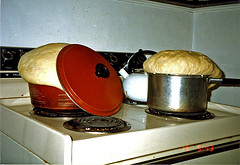
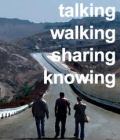 My experience of abstinence, when imposed by someone else, has sometimes been a negative one. But when it’s self-imposed it’s been a time of great freedom. Every spiritual tradition trains the body (outer self) as the starting point to train the soul (inner self); there’s always a twinning of “prayer and fasting”. That’s been true for me; whether I gave something up or took something up, it’s been a time of deepening connection with the Divine, myself, and a community that shared the practice.
My experience of abstinence, when imposed by someone else, has sometimes been a negative one. But when it’s self-imposed it’s been a time of great freedom. Every spiritual tradition trains the body (outer self) as the starting point to train the soul (inner self); there’s always a twinning of “prayer and fasting”. That’s been true for me; whether I gave something up or took something up, it’s been a time of deepening connection with the Divine, myself, and a community that shared the practice. 
